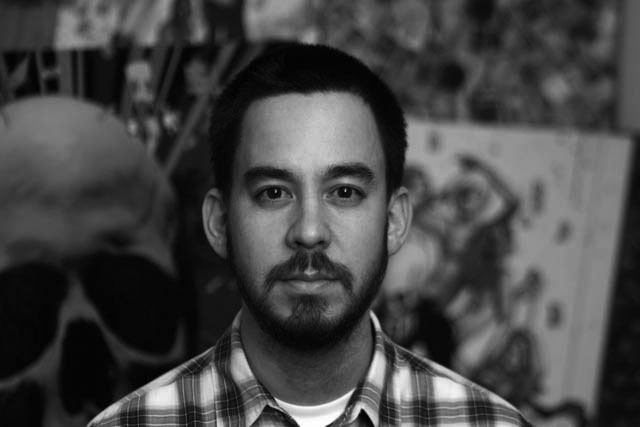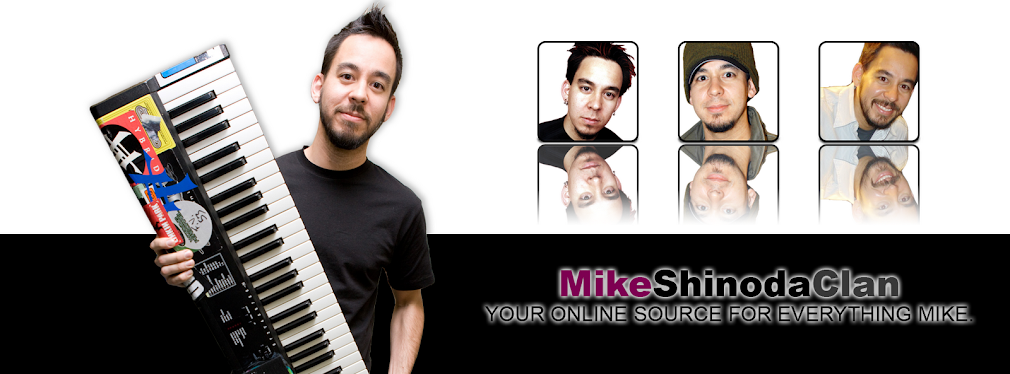Friday, February 11, 2005
August 28, 2009
Linkin Park’s Mike Shinoda On Dealing With Brutal Criticism & Fighting Tooth And Nail For Your Vision
Do you get defensive when your creative vision is criticized after days of painstaking work? So did Mike Shinoda, who isn’t just a super-successful musician but also an exciting artist. He was kind enough to talk exclusively to SUBvert about his own personal and sometimes painful experiences in the early days of Linkin Park. Read on to discover how you can use Mike’s hard-learned lessons to boost YOUR creative career...
Why listen to what Mike Shinoda has to say? Because right now, there is a good chance that you are taking creative advice from your mates at work, your buddies on twitter and the guy down the pub who played guitar once in the 70s.
Here’s your opportunity to learn from a guy who’s sold over 50 million albums and won two Grammy Awards. He’s a vocalist, songwriter, rapper, plays keyboard and guitar, he’s also a producer and an outstanding artist. If you want to be the best, then learn from the best...
Oyakodon
So, Mike, you’re clearly a dedicated guy who has invested a lot of time into various artistic skills. What’s the most important lesson you’ve learned whilst developing your talent?
One big breakthrough happened in college. I went to Art Center in Pasadena, which is a really fast-paced and competitive school. There was very little social life on campus, because the workload was just so heavy.
We took what we did very seriously...so spending 40 hours on a painting, then putting it up in front of your class to have 30 people critique it was brutal.
As freshmen, most people got really defensive about their work. Then, at some point, I realized that the criticisms that made me the most defensive were usually the ones that were right. It really helped me to enjoy the process of making my work better, by leaving ego at the door during the creative process.
Neuphoria
Having your work critiqued by people is tough, was there ever a time when you struggled to overcome that fear of publishing your work or performing in-front of an audience?
When we released Hybrid Theory. Our first album was painful to make, because it seemed like everyone was trying to tell us to change. They wanted us to be more like this band or that band, and we fought it tooth and nail the entire way.
So, that is to say: we made the album we wanted to make.
But once it came out, it took off surprisingly fast, and we got a lot of criticism for it entering the mainstream so quickly!
We had to overcome a lot of our own fears about what it meant to “sell out,” and realized that we never “sold out” at all—we did what we wanted to do, and people reacted to it in a positive way.
As long as we didn’t compromise our integrity, we could stand behind the record, which is what we did.
In the studio
You’re renowned for having very loyal and committed fans, developing that rapport is a skill-set in itself, how did you learn that?
On our first tour, we opened for a band that treated us like crap. Our album wasn’t out—incidentally, neither was theirs—but they had a single that was starting to do well on the radio. We would get to the venue, and those guys would take up every room in the place, leaving us to sit on the curb outside waiting to play.
Instead of signing autographs, they would charge their fans for a signed picture. They had hairdressers and bodyguards, and we were playing 500-seat clubs! It was ridiculous. But instead of moping outside, we talked to the fans. We signed everything and gave our demo cassettes away for free.
We learned a great lesson: treat your opening bands and fans with respect. Today, we still set up a meet-and-greet with our fan club at every event, and we make an effort to treat our opening bands with respect.
Mike Shinoda, Joe Hahn and Shepard Fairey
Tell me about about your understanding of money and how it works in the creative industries.
My art show, “Glorious Excess Dies” is about this idea. It’s about obsession with celebrity culture, consumer addiction, and fascination with excess; how our opinions are shaped by viral news and our idols, and what it all looks like to me.
There’s a saying in the music industry: “as soon as you can afford everything, they give it to you for free.” Maybe the bottom line is that I don’t know how money and fame work yet, but I know that sometimes it seems like the whole world is obsessed with them to an unhealthy degree.
I’d like to live in Mike’s garage
You must spend a fair amount of time online like us, as a blogger yourself, how important do you think the Internet is to the creative industries now and going forward?
How important? It couldn’t be more important. As a creative person, your top priority is making good art. After that, your top priority is to have a strong online presence!
Thanks Mike, it’s been a pleasure. Some important lessons there and plenty of things that people can put into action for themselves. I look forward to hearing how our readers are able to learn from your experience.
Interview by Angel Greenham.
Editing by Paul Magee













0 comments:
Post a Comment